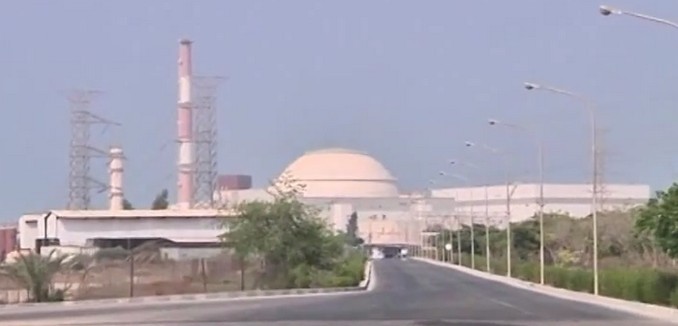The checkered history of the International Atomic Energy Agency’s inspections, which are meant to determine if a nation’s nuclear program is for peaceful purposes only, demonstrates the need for agency to have complete access to all areas in Iran—including military sites—that are suspected of having nuclear activity, Yishai Schwartz, an associate editor of the Lawfare Blog, wrote Monday. At issue are Iran’s ongoing protests that it will not allow inspections of its military sites, coupled with France’s insistence that there can be no nuclear deal with Iran without an ability to inspect military sites.
Until the discovery of Saddam Hussein’s incipient nuclear program in the early 1990s, the primary legal architecture for nuclear inspections were aimed at countries’ announced nuclear sites. Countries—including Iran, in 1974—concluded “comprehensive safeguards agreements” with the International Atomic Energy Agency (IAEA) outlining reporting requirements and guaranteeing IAEA access to their nuclear facilities. But even during these early years, “special inspections” guaranteed the IAEA access beyond the declared nuclear sites–in cases where reporting and standard visits were deemed by the IAEA “not adequate for the Agency to fulfill its responsibilities” (Article 73). Crucially, there was never any exemption, exclusion or exception for military installations.
Of course, no country liked the idea of foreign inspectors poking around their military bases. But each realized that the comprehensiveness of inspectors’ reach was crucial to the entire system. If there would be inspections-free zones, there could be no guarantee that states’ nuclear programs were peaceful….
Throughout the years of sanctions and negotiations, Iran has chafed at restrictions and repeatedly demanded to be treated just like any other state. But in insisting on a special exemption denying IAEA access to military site, Iran is actually demanding special, privileged treatment. The fact that the p5+1 would even consider subjecting such visits to a “joint commission” of the IAEA represents a significant, and dangerous, departure from previous practice. The logic of the oversight system rests on the assumption that the IAEA Board of Governors holds ultimate authority to decide where its inspectors go, and that the Security Council serves as its enforcement mechanism. Playing with these details would gut the entire structure.
Schwartz argued that insisting on access to military sites “is something of a no-brainer,” and encouraged the United States “to follow France’s lead.”
French Foreign Minister Laurent Fabius told The Wall Street Journal Monday that a deal that doesn’t include inspections of nuclear sites would be “useless.” The IAEA agrees with Fabius about the importance of inspecting military sites.
A senior Iranian negotiator claimed Monday that the inspection of nuclear sites “has never been” on the agenda of the nuclear talks. Iran’s leadership, including Supreme Leader Ayatollah Ali Khamenei, Defense Minister Hossein Dehghan and Atmoic Energy Organization of Iran spokesman Behrouz Kamalvandi have all said that Iran will not allow inspections of military sites. Foreign minister and chief nuclear negotiator Mohammad Javad Zarif has described calls for inspections of military sites as “excessive demands.”
[Photo: JewishNewsOne / YouTube ]




